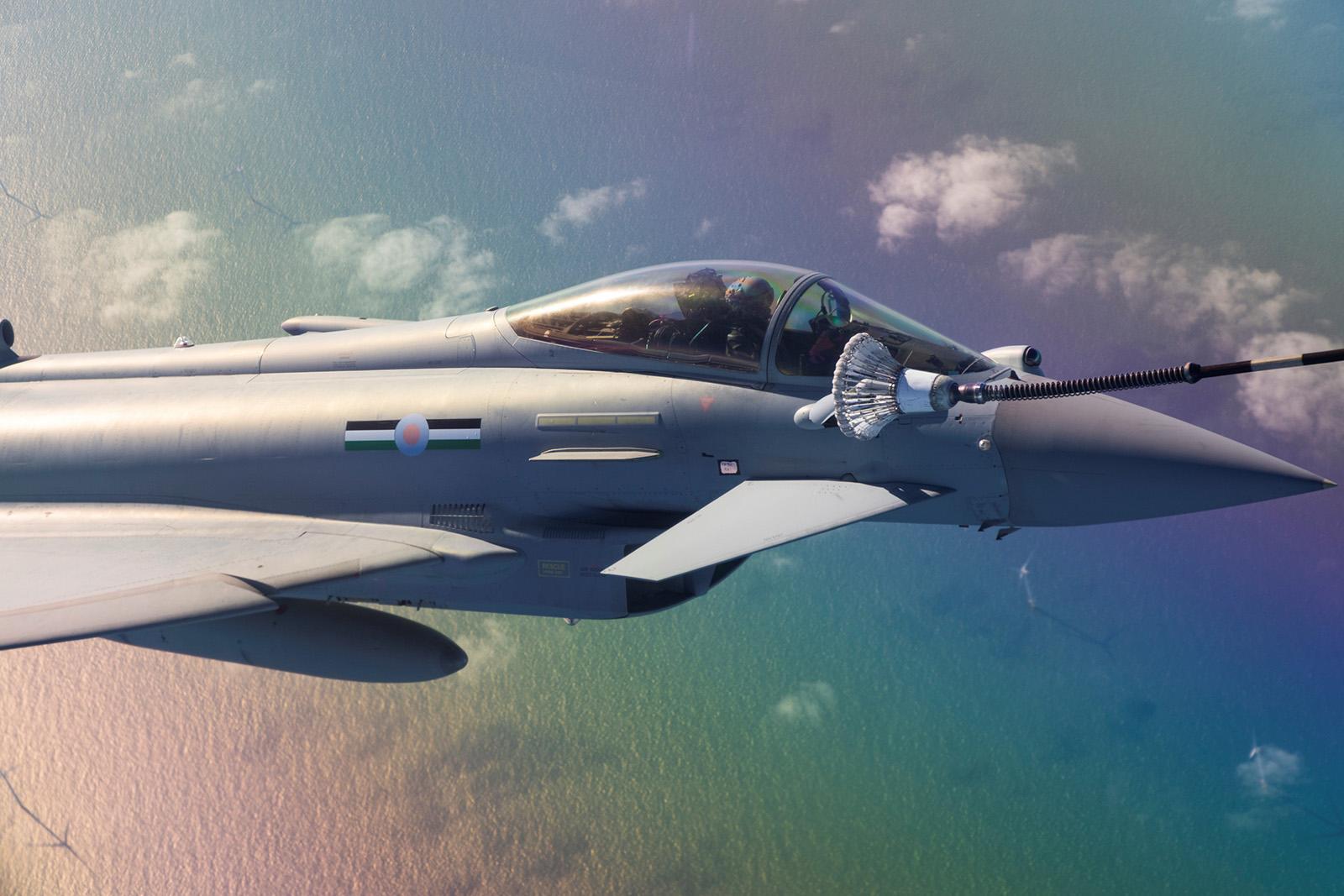
LONDON—The UK Royal Air Force (RAF) has completed another aerial refueling flight with sustainable aviation fuel (SAF).
The Airbus A330 Voyager Multi-Role Tanker Transport (MRTT) flew with a 43% blend of SAF during the April 17 flight, and transferred some of the fuel to four RAF Eurofighter Typhoons.
The flight, which included flying over Farnborough, England, where the Sustainable Skies World Summit is being held, forms part of the RAF’s ongoing efforts to explore the use of sustainable and synthetic fuels to reduce its carbon footprint and become a net-zero contributor by 2040—ahead of the UK’s legislated target of 2050.
Previous trials have seen the RAF fly its Voyager with 100% SAF, later using the remaining fuel from those trials to aerially refuel a C-130 Hercules and Eurofighter Typhoon.
The Voyager SAF flights are part of an ongoing task from the RAF’s Chief of the Air Staff to gather the required data to inform the longer-term transition away from fossil fuels.
According to the RAF, the SAF was sourced by International Airlines Group (IAG) and supplied by BP.
“The continued success of sustainable aviation fuel is reassuring to see,” said Air Vice Marshal Paul Lloyd, the chief of staff for support and the RAF’s Chief Engineer.
“If we are to achieve our net zero goal by 2040, then exploiting these technologies is going to be an enormous but worthwhile endeavor … Despite the challenge, the benefits of reducing our reliance on traditional supply chains and fossil fuels outweigh it,” Lloyd added.
As well as testing SAF, the RAF is also investing in synthetic fuels. The service’s Project Vermeer in conjunction with C3 Biotechnologies saw the flight of a UAV powered by a synthetic aviation fuel produced using a carbon emission-free process. Project Martin developed a synthetic AvGas in conjunction with startup Zero Petroleum by extracting hydrogen from water and carbon from atmospheric carbon dioxide. The RAF’s vision for SAF aims not only to reduce the air arm’s carbon emissions, but to also lessen the reliance on supply chains.
